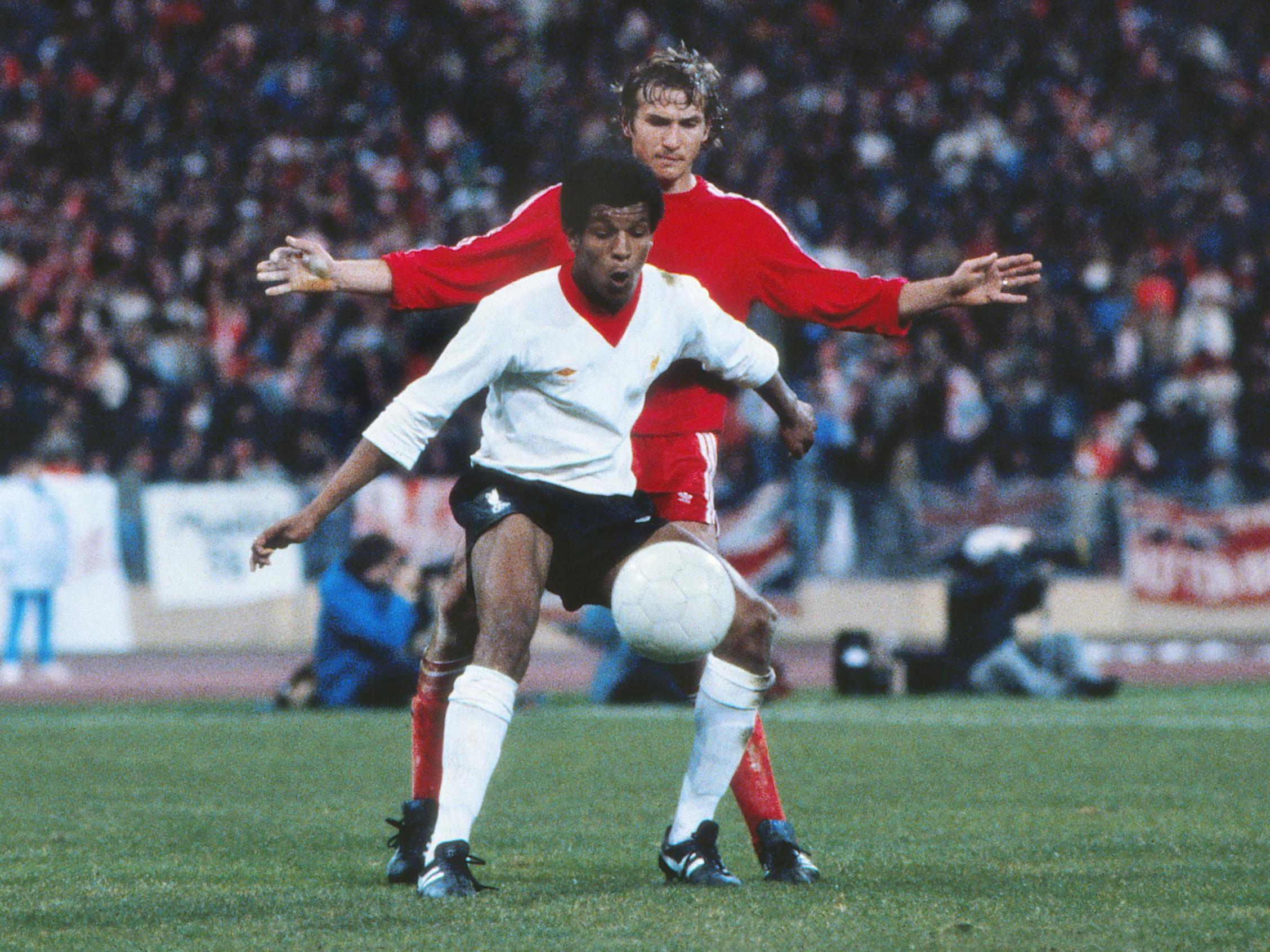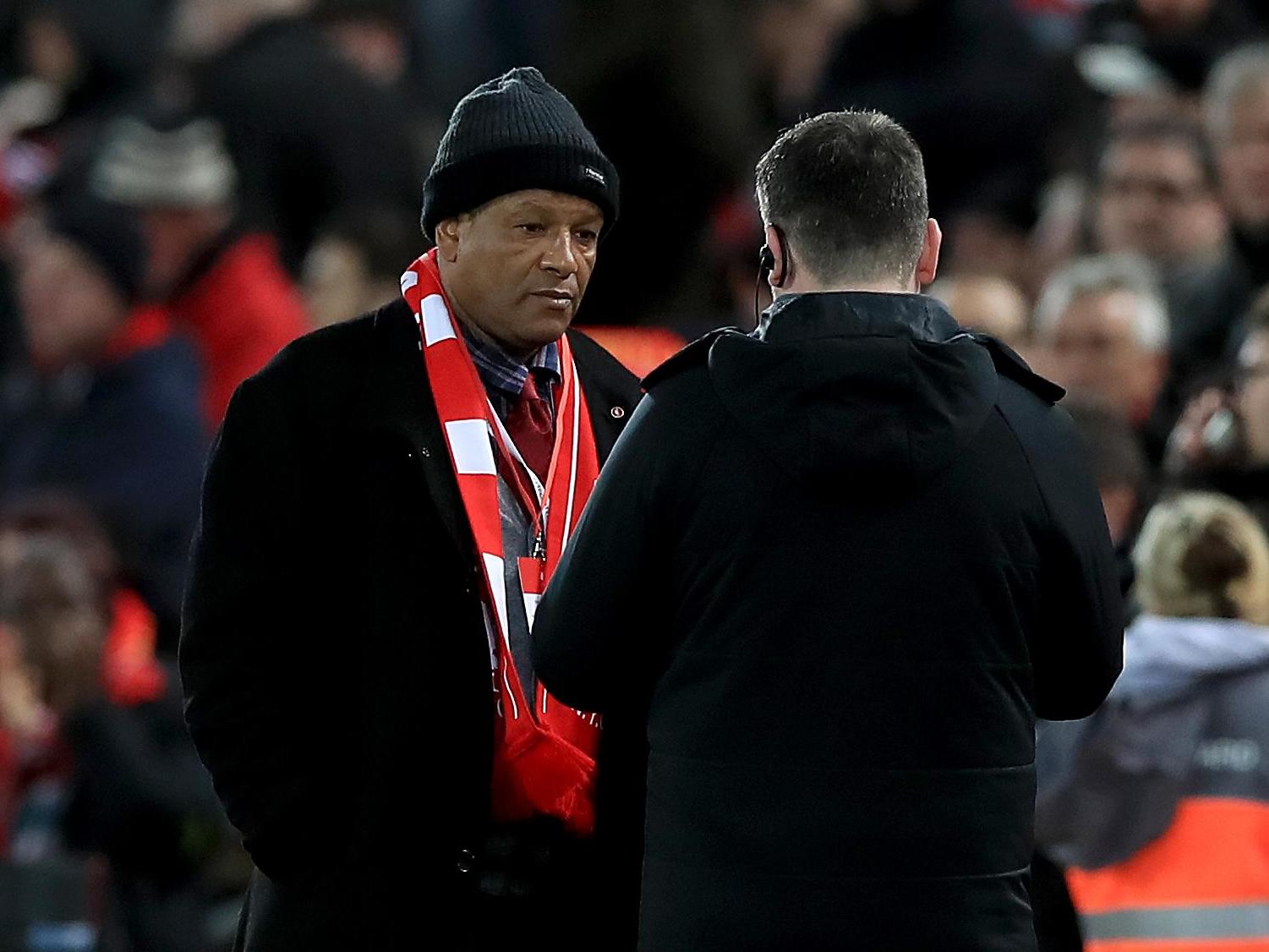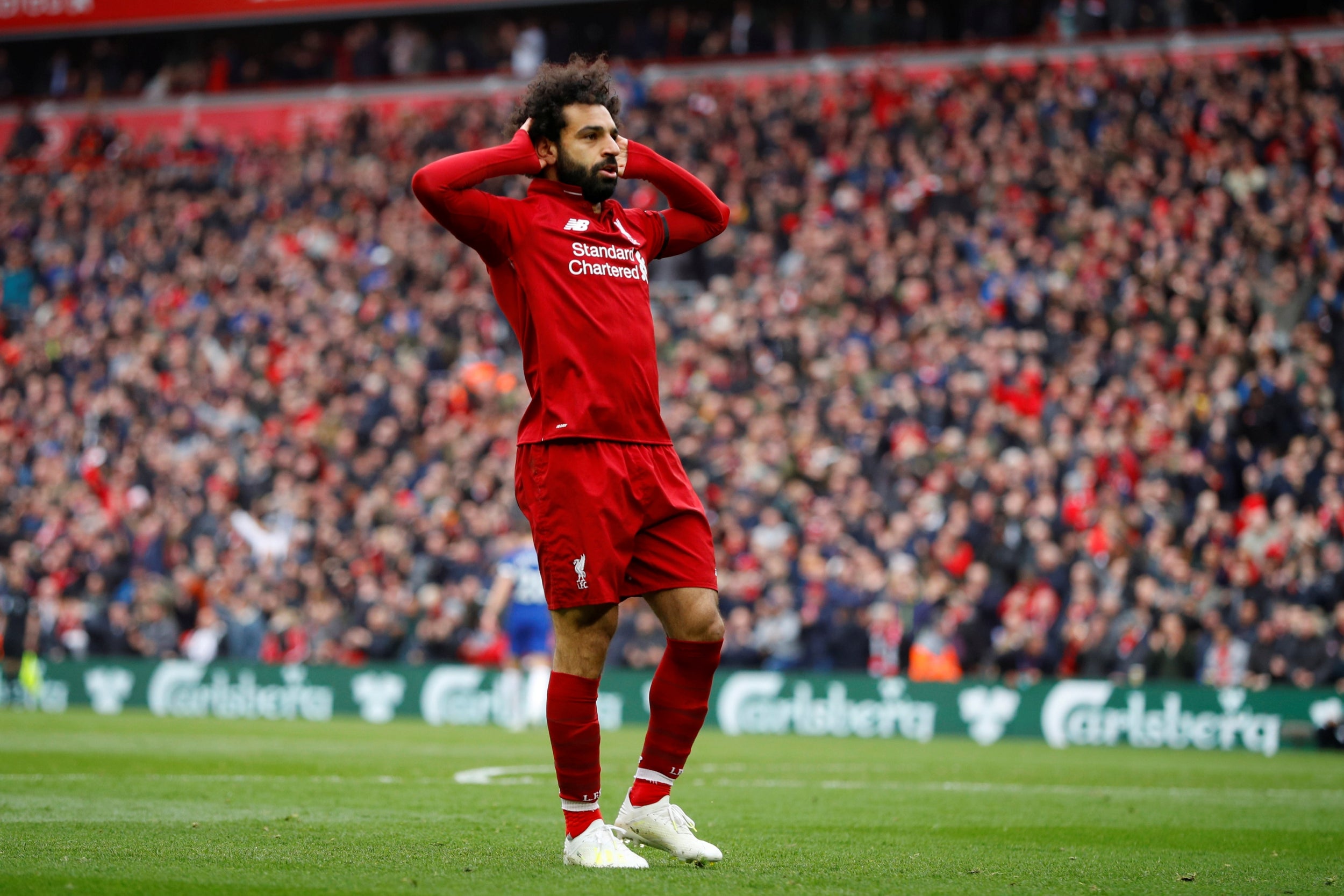Liverpool, Howard Gayle and the harsh lessons football can still learn from his story
Gayle’s story is still hugely relevant to modern Liverpool, modern football and modern society as a whole
Tommy Smith has been described as a hero and a legend. That’s how Howard Gayle felt about him until he became a Liverpool player and was subjected to racist abuse from a captain he’d supported from the terraces, a captain who years after retiring described Gayle as a “white n****r” and warned how he’d react if one of his daughters brought home a black boyfriend.
Smith’s passing on Friday following a long struggle with dementia – triggered, thought his family, by the death of his wife from the same awful condition – was uncomfortably timed for the club he represented so stridently and successfully because less than 24 earlier Liverpool had rightly condemned all forms of bigotry after videos of Chelsea supporters branding Mohamed Salah a “bomber” circulated on social media.
Smith will not be remembered by everyone for his views on race. He was a fine footballer and hugely decorated. To his teammates he was a pillar of Bill Shankly’s side and to supporters he was the Anfield Iron - and this was reflected by a hastily made banner which appeared on the Kop on Sunday.
To many of the journalists who knew him from Anfield’s press room where he had a residency on match days across three decades, Smith was the approachable ex-Red who held court while guarding the sandwiches. It was an environment where for a long time nearly everyone – if not everyone – was male and white.
I first met Gayle in 2010 and this interview, where he spoke about his relationship with Smith, led to the release of his autobiography six years later. When he first asked me to write about his life I was nervous because I did not know whether I’d be able to relate to his experiences, some of which were even bleaker than I’d imagined.
I was half his age and I came from the nearly absolutely white north end of Liverpool while he was from the south - born in the cultural melting pot of the Liverpool 8 area of Toxteth having grown up in Norris Green, the sink estate where he first experienced racism. This taught Gayle never to back down in the same way - but for altogether different reasons - to Smith who was once told by Shankly, “don’t take shit off anyone.”
When John Aldridge said on Friday that Smith was a “what you saw was what you got” sort of person, that meant he was a tough, uncompromising, fiercely proud Liverpudlian and as I got to know Howard I came to appreciate that he possessed similar characteristics but with one key difference - he was black and, understandably, he was never going to apologise for that. “My brothers,” Howard told me, “said that the only way of defeating racism was to stand up for yourself by whatever means.”
I suggested to him that he may have been doomed from the moment he signed for Liverpool. At Melwood, all players were subjected intense scrutiny – a deliberate process of ironing out any insecurities. The unwritten and unspoken theory was, if you could survive Melwood, you could survive all taunts and made the Liverpool team more resilient on the pitch.

Howard received support from Graeme Souness the day he reacted to a barrel-load of provocation from Smith by waiting for him in the car park and threatening him with a baseball bat, though he believed it ultimately impacted on his chances of becoming a first team regular. If Smith did not like something he heard he would, after all, find a way of ensuring it was not said again. Though some players from other clubs had a problem with that, nobody in particular at Liverpool did. Smith never bothered him again directly – partly because he was right at the end of his football career, but Howard concluded that Bob Paisley’s trust in him only stretched so far.
His ability was acknowledged when Paisley thrust him into the limelight for the second leg of a European Cup semi final in 1981 by introducing him as an early substitute for Kenny Dalglish. His impact was explosive and he should have earned Liverpool a penalty following Wolfgang Dremmler’s extraordinary foul which for some unexplainable reason was deemed just fine. The Portuguese referee watched on as Bayern Munich’s players tried to stop him by chopping at his legs while some German supporters made monkey noises.
Moments after Howard was booked for an innocuous looking challenge – his first foul of the evening – Paisley decided to withdraw the substitute fearing he might get sent off, like he did once – but only once – a couple of years earlier in a reserve match after he started grappling with a Bury defender who had used racist language. Munich was a night of glory for everyone associated with Liverpool but for Howard in the quiet parts of his mind it was an ignominious end to an experience which could have been – with a better understanding of his background and personality – a trampoline for him into becoming a regular in Paisley’s side.

He was attempting to enter, by his own admittance, one of the best Liverpool teams ever. Was he as talented as Dalglish? Probably not. Was he quicker and more powerful than David Johnson? Undoubtedly. He told me in our first meeting, “Football was an escape and when I was on the pitch I felt a sense of belonging that I did not feel in other parts of my life.”
In the industry of football, he was determined to be judged only as a footballer but he realised for that to happen, as Liverpool’s first black professional, he had to deal with issues that perhaps many of the black players after him did not.
His dilemma was unique, and one which he could not really win: by fronting bullies inside or outside of the club he loved and represented, he was following his conscience and not betraying his past, showing the sort of fearlessness that any Liverpool player needed to succeed. Simultaneously, any sort of forceful reaction, he thought, worried the key decision makers and this was reflected by what happened in Munich.
Two months later, the Toxteth Riots prompted Paisley to ask Howard to move out of the area and though he eventually did – buying a house just a few miles away in Mossley Hill, he made his reluctance clear – he did not want to abandon the community where he felt safest. He would make mistakes over the next couple of years but none of those, he thought, were as defining as the moment he took on Smith.
“All I wanted,” he stressed, “was to be out on that pitch – the best way of silencing any racist is to show your talent, though you need that platform and trust first.”
While for modern Liverpool the weekend has provoked further conversations and clarity about the club’s stance on homophobic chanting whenever they play Chelsea – as well as the dangers of pyrotechnics, one of which landed in the away section of the Anfield Road stand in the celebrations after Sadio Mane headed his team into the lead, the uncomfortable truth around what happened between Smith and Gayle reminds of the historical challenges all football clubs face when making a stand against something that is deep-rooted and transcends the game itself.

This Liverpool team is made up of players from a wider variety of backgrounds than the one Gayle entered. Liverpool’s goals against Chelsea were both scored by Muslims. While Mane has spoken about his closest childhood friend being a Christian called Luke even though Senegal is a country where 90 per cent of the population share the faith of his father who was the local imam, Salah’s closest confidant at Liverpool is Dejan Lovren and the combined images of the Egyptian performing the sujood and the Croatian making the sign of the cross seconds after Salah’s wondergoal reflected the understanding that exists between Liverpool’s players despite religious and cultural differences.
Like Raheem Sterling, sources close to both Liverpool forwards have indicated they think walking off the pitch would allow the racists to win and that the best way of taking on prejudice is by demonstrating how devastating they can be as footballers. Considering the standards reached by Sterling and Salah since both were targets of recent abuse, perhaps elite level football is one frontline where intolerance no longer plays a defining role in how some players, at least, are remembered.
Join our commenting forum
Join thought-provoking conversations, follow other Independent readers and see their replies
Comments